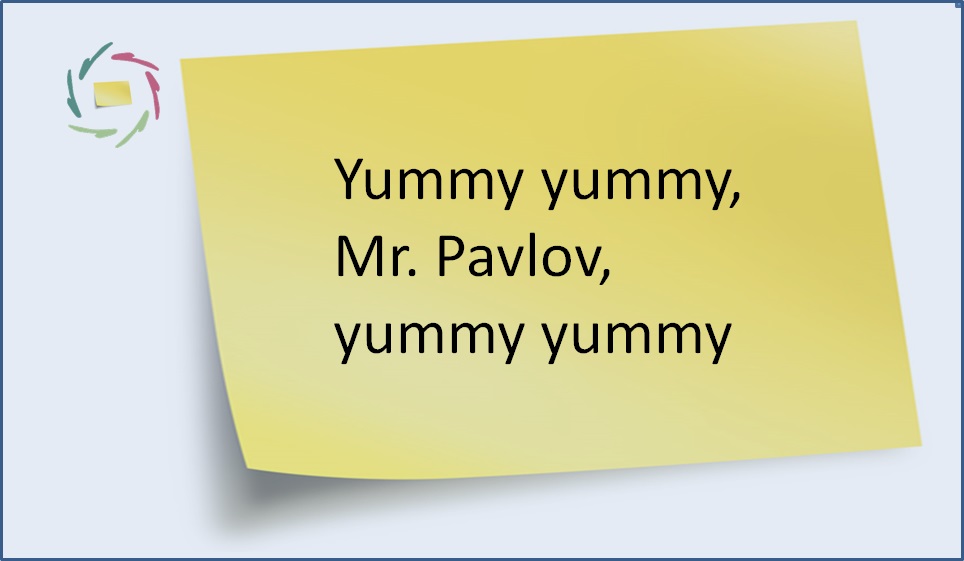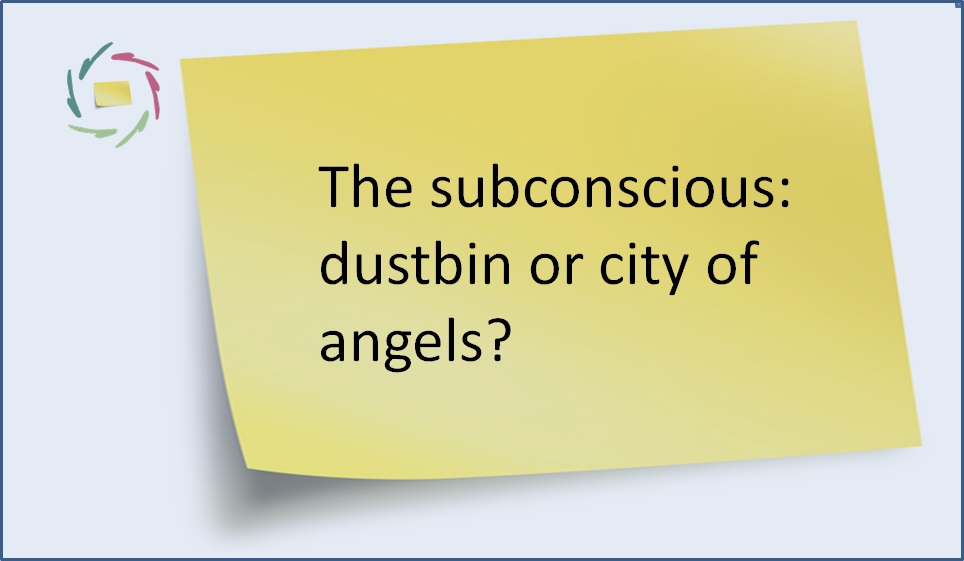5. Yummy yummy, Mr. Pavlov, yummy yummy

Pavlov took a dog and gave him food (unconditioned stimulus = UCS) paired with the sound of a bell. After a while, the sound of the bell (conditioned stimulus = CS) gave the same response as the UCS, namely: drooling. Pavlov considered his dog conditioned very well. He and others showed again and again this ‘classical conditioning reflex’ to be real and powerful.
◊◊◊
However, at the same time the poor (or quite content and well-fed) dog was thinking. Yes. He was thinking. Very important. He was expecting the food when the bell tolled. Without this expectation, the bell did nothing. The bell and the food meant something to the dog. The bell had meaning.
◊◊◊
More so: unconditioned and conditioned stimuli in Pavlov’s paradigm are themselves in fact ‘meanings’. Put yourself in place of the dog:
- Now ‘food’ means ‘yummy yummy’. Saliva flows.
- Then by association the bell comes to mean ‘food will come’, thus: ‘yummy yummy’. Saliva flows.
In the end, nor food, nor bell make saliva flow. ‘Yummy yummy’ does. This is therefore the real stimulus. Namely: ‘food-yummy yummy’ is the real UCS, while ‘bell-yummy yummy’ is the real CS.
◊◊◊
Thanks. You may take your place as observer again.
◊◊◊
If the dog becomes deaf or brain-damaged in a specific way, the bell doesn’t mean anything anymore and there’s no flow of saliva. Of course, this is just a playing with words, but it makes the consequence clear, namely: there is no classical conditioning without meaning.
◊◊◊
If classical conditioning is looked upon, rather narrowly, as showing that the importance of ‘meaning’ can be put aside and that mental responses (of dogs or humans) can be seen as instances of ‘just being conditioned’, then that is clearly, utterly, plainly wrong.
◊◊◊
Meaning is there. Meaning is important. Meaning is a profound way to change many things, to grow as a person. Talking about ‘mere reflexes’ is a way to deny this huge human potential.
◊◊◊
I keep having the impression that this denial is born out of fear.
It’s not even justified fear.
◊◊◊


